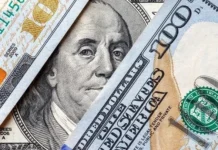After a significant reduction in U.S. interest rates and a decline in global stockpiles, oil prices were poised to finish higher for a second consecutive week, with little change in early Asian trade on Friday.
This week, Brent futures have increased 4.3%, reaching $73.69 a barrel at 0027 GMT, down 19 cents or 0.3%. U.S. unrefined, which was up 6 pennies at $72.01 a barrel, has enrolled week by week gains of 4.8%.
The benchmarks have been recuperating after they tumbled to approach long term lows on Sept. 10, and have enlisted gains in five of the seven meetings from that point forward.
On Wednesday, the U.S. central bank reduced interest rates by half a percentage point. Typically, interest rate cuts increase economic activity and energy demand, but some saw the significant cut as a sign of a weak labor market in the United States.
Unrefined inventories in the U.S., the world’s top maker, tumbled to a one-year low last week, government information displayed on Wednesday.
A counter-occasional oil market shortage of around 400,000 barrels each day (bpd) will uphold Brent unrefined costs in the $70 to $75 a barrel range during the following quarter, Citi experts said on Thursday, however added costs could plunge in 2025.
Unrefined costs were likewise being upheld by rising pressures in the Center East. On Wednesday, walkie-talkies used by the armed group Hezbollah in Lebanon exploded, following similar explosions of pagers the day before.
Security sources said Israeli covert agent organization Mossad was mindful, however Israeli authorities didn’t remark on the assaults.
Powerless interest from China’s easing back economy was burdening costs, with treatment facility yield in China easing back for a fifth month in August. China’s modern result development likewise eased back to a five-month low last month, and retail deals and new home costs debilitated further.





